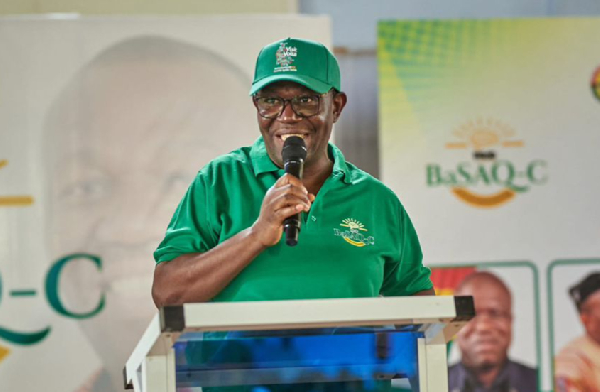- Emmanuel Bedzrah has rejected ECG’s proposed 225% tariff hike.
- He cited bipartisan criticism and lack of public trust in ECG’s management.
- ECG argues the increase is necessary to avoid collapse and improve service.
- Bedzrah vowed to block the proposal from reaching Parliament.
- The debate raises questions about electricity as a social vs. private good.
Chairman of Parliament’s Energy Committee, Emmanuel Kwasi Bedzrah, has declared his firm opposition to the Electricity Company of Ghana’s (ECG) proposed 225% tariff hike, describing the request as unjustifiable and politically indefensible. Speaking on September 9, Bedzrah warned that ECG has lost the confidence of both lawmakers and the public, and should not expect parliamentary support for any adjustment.
The proposal, submitted to the Public Utilities Regulatory Commission (PURC), seeks to raise ECG’s Distribution Service Charge from GHp19.0384/kWh to GHp61.8028/kWh for the 2025–2029 tariff period — a move ECG claims is necessary to prevent financial collapse and improve service delivery.
But Bedzrah isn’t buying it. He cited widespread bipartisan frustration within his committee, accusing ECG of mismanagement and poor stakeholder engagement. He recalled a previous 17% increase that was implemented without consulting Parliament, and questioned how the utility could now justify a 225% jump.
The Energy Committee chair also criticized ECG’s failure to build public trust, noting that his committee’s internal platform has been flooded with complaints from both sides of the aisle. He vowed to personally intervene with PURC to block the proposal from reaching Parliament.
ECG, which serves over 73% of Ghana’s population, argues that the current tariff structure is unsustainable and that the increase would fund infrastructure upgrades, smart meter deployment, and improved reliability. But Bedzrah insists that until ECG addresses its internal inefficiencies and regains public confidence, no amount of technical justification will be enough.
The debate has reignited broader questions about whether electricity should be treated as a social good or a commercial service — and whether government should absorb part of the cost to protect consumers from economic strain.

